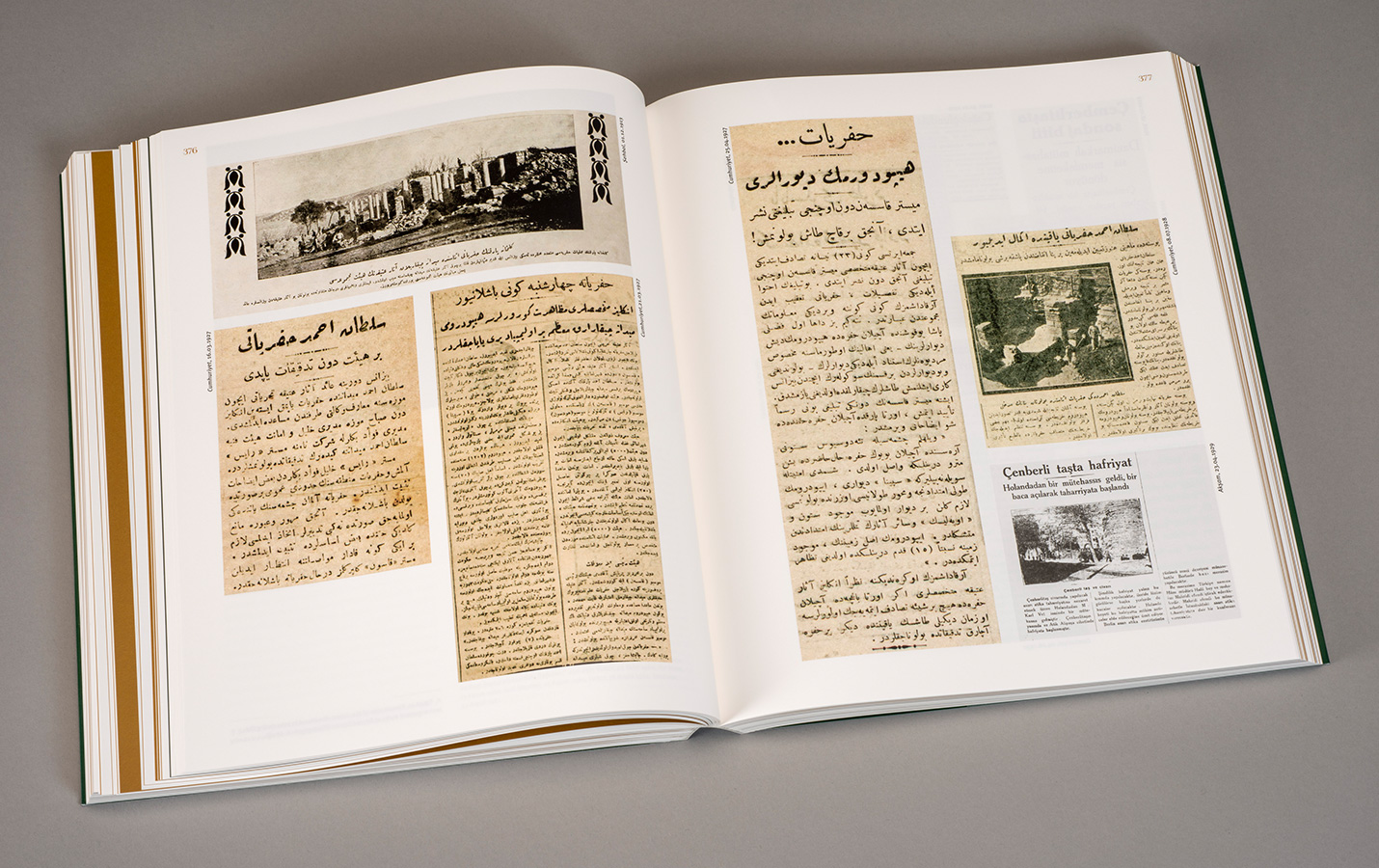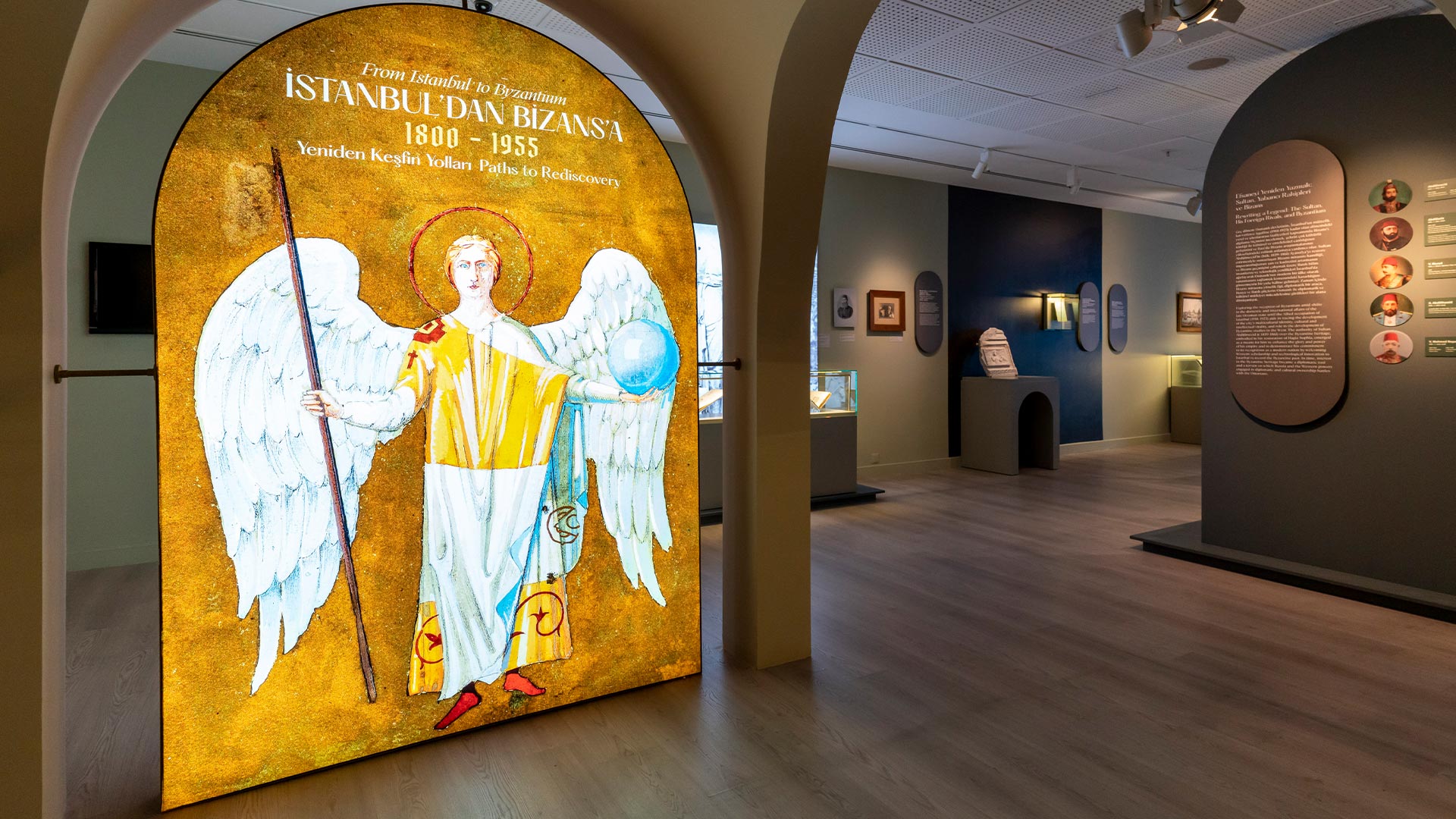November 23, 2021 - March 13, 2022
In the nineteenth and early twentieth centuries, a confluence of geopolitical, diplomatic, academic, artistic, and local interests in Istanbul paved the way for increased awareness of the Byzantine past as a rich and shared heritage. Pera Museum and Istanbul Research Institute’s exhibition From Istanbul to Byzantium: Paths to Rediscovery, 1800–1955, curated by Brigitte Pitarakis, explored the central role of the Ottoman capital in shaping the emerging discipline of Byzantine studies.
In Istanbul’s lively and multicultural environment, a common passion arose in intellectual circles among people from diverse backgrounds, origins, and countries who had come together in newly established cultural and academic institutions focusing on Byzantium. Over the course of transformations in the landscape set in motion by efforts to modernize the city, steps were taken to move away from the simplistic orientalist view of Constantinople as a fantastically picturesque city by adopting a rational approach to antiquities newly discovered or recently rediscovered. Those involved in documenting Istanbul’s Byzantine past not only blazed a trail in the conservation of the city’s cultural heritage but also developed scientific methods of study in their search for certainty.
These developments—leading toward a scientific approach to Byzantium and insufficiently studied until recently—stood at the center of From Istanbul to Byzantium. They weredocumented through an impressive array of archival holdings, particularly the Byzantine collections of the Istanbul Archaeological Museums. The juncture of circumstances and activities that triggered interest in Istanbul’s Byzantine past was contextualized by bringing together Byzantine artifacts along with related books, prints, maps, photographs, documents, and paintings from the collections of the Istanbul Archaeological Museums, Istanbul University Rare Books Library, Ömer Koç, the Suna and İnan Kıraç Foundation, the German Archaeological Institute in Istanbul, Galeri Nev İstanbul, Serap Kayhan, Dr. Safder Tarim, Büke Uras, and the Birmingham East Mediterranean Archive; EPHE, Fonds Gabriel Millet, Collège de France; Fonds Thomas Whittemore, and the Bibliothèque nationale de France in Paris. A 3D animation by A. Tayfun Öner helped animate the initial stages of the modern discovery of Byzantium and the path toward its heritage becoming an area of academic study, conservation, and widespread interest.
3D Virtual Tour
Exhibition Catalogue

From Istanbul to Byzantium: Paths to Rediscovery, 1800-1955 explores the pivotal role of Istanbul in the emergence of a new and international and local awareness of the city’s Byzantine heritage.

Pera Museum and Istanbul Research Institute’s exhibition From Istanbul to Byzantium: Paths to Rediscovery, 1800–1955, curated by Brigitte Pitarakis, explores the central role of the Ottoman capital in shaping the emerging discipline of Byzantine studies.
Pera Learning

He didn’t expect this from me. And I hadn’t expected that we would decide to get married that day, at that moment. Everything happened all of a sudden, but exactly like it was supposed to happen in our day. We thought of the idea of marriage simultaneously, we smiled simultaneously, blinking and opening our eyes in unison.
Tuesday - Saturday 10:00 - 19:00
Friday 10:00 - 22:00
Sunday 12:00 - 18:00
The museum is closed on Mondays.
On Wednesdays, the students can
visit the museum free of admission.
Full ticket: 300 TL
Discounted: 150 TL
Groups: 200 TL (minimum 10 people)